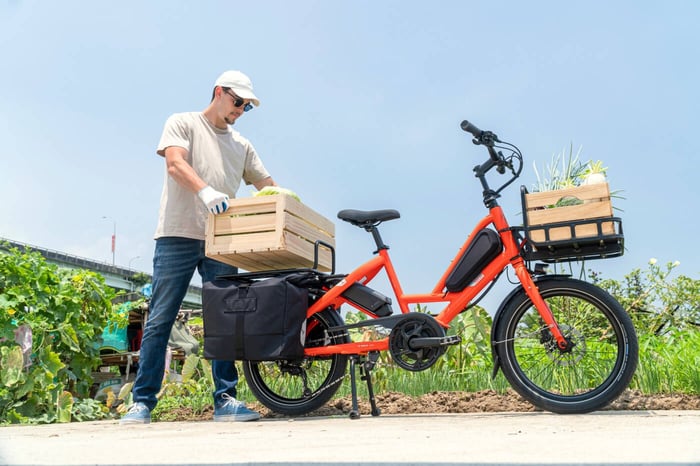As urban transportation evolves, electric bicycles have emerged as a popular alternative to traditional modes of commuting. However, with various classifications like Class 1, 2, and 3, it's crucial to understand the distinctions between them to make informed decisions. Let's delve into what sets these classes apart.
Class 1 Electric Bicycles: The Pedal-Assist Pioneers
Class 1 electric bicycles are equipped with a pedal-assist system, providing assistance only when the rider pedals. They don't have a throttle, meaning the motor assistance is strictly tied to the rider's pedaling input. The maximum speed of a Class 1 e-bike typically doesn't exceed 20 mph (32 km/h), ensuring a safe and manageable riding experience. These bikes are widely accepted on bike paths and trails where traditional bicycles are allowed, making them a favorite among commuters and leisure riders alike.
Class 2 Electric Bicycles: The Throttle Twist
Class 2 e-bikes share similarities with Class 1 in terms of speed limits but come with an additional feature—a throttle. This means riders can engage the motor without pedaling, simply by twisting a handlebar grip or pressing a button. While they still adhere to the 20 mph speed cap, the throttle feature offers convenience, especially in situations where pedaling might not be desired or feasible, such as steep inclines or when starting from a complete stop.
Class 3 Electric Bicycles: Power and Speed Combined
Class 3 electric bicycles, often referred to as speed pedelecs, offer a higher level of assistance compared to Classes 1 and 2. These bikes come with a pedal-assist system, like Class 1, but with the capability to reach speeds of up to 28 mph (45 km/h). Class 3 e-bikes are ideal for riders seeking a faster commute or those covering longer distances in less time. However, it's important to note that regulations regarding Class 3 e-bikes can vary by region, with some jurisdictions requiring additional safety features such as helmets or specific age restrictions.
Electric Bicycle Laws in Pennsylvania
In Pennsylvania, electric bicycles are classified as bicycles under state law, with specific regulations in place:
-Class 1 and 2 e-bikes: These are permitted on bike paths, multi-use trails, and streets where bicycles are allowed. Riders must be at least 16 years old, and helmets are required for riders under 12. Class 1 and 2 e-bikes must have a maximum speed of 20 mph.
-Class 3 e-bikes: While Class 3 e-bikes are not explicitly addressed in Pennsylvania state law as of 18 April 24, they are generally treated similarly to Class 1 and 2 e-bikes. However, local ordinances may vary, so riders should check with their municipality for specific regulations.
Lithium-ion Battery Safety and UL Certification
The heart of any electric bicycle is its battery, and ensuring its safety is paramount. Lithium-ion batteries, commonly used in e-bikes, are known for their energy density and longevity. However, proper handling and manufacturing standards are essential to prevent safety hazards.

Bosch, a leading manufacturer of electric bicycle components, including batteries, stands out for its commitment to safety and quality. With hundreds of millions of dollars spent in research and development, Bosch has established itself as a pioneer in battery technology. Their lithium-ion batteries undergo rigorous testing and certification processes to ensure compliance with industry standards.
One crucial certification for electric bicycle components is UL (Underwriters Laboratories) certification. The entire Bosch e-bike system, including the battery, charger, drive unit, and display, is tested and certified to UL 2849, the most extensive and rigorous standard for e-bike electrical systems to date. Each component undergoes individual testing for safety against potential electrical system hazards, as well as comprehensive testing for system safety.
Bosch's dedication to battery safety and reliability provides e-bike riders with peace of mind, knowing that their electric bicycles are equipped with technology that meets the highest industry standards.
Choosing the Right Class for Your Needs
When deciding which class of electric bicycle is right for you, consider your intended usage, local regulations, and personal preferences.
-Class 1 e-bikes are excellent for those who prioritize exercise and want a natural cycling experience with added assistance.

-Class 2 e-bikes provide the convenience of a throttle, making them suitable for riders who may need extra help in certain situations.
-Class 3 e-bikes are perfect for commuters covering longer distances or seeking a faster ride, but make sure to familiarize yourself with local laws regarding their use.

Understanding the differences between Class 1, 2, and 3 electric bicycles empowers riders to make informed choices based on their needs and preferences. Embracing electric bicycles not only offers a sustainable and efficient mode of transportation but also adds a new dimension of freedom and enjoyment to urban mobility.
Also, it isn't just the price that should matter when making an e-bike purchase, we must also look for the UL certifications. Go Grava Bicycles will not sell any e-bike system that isn't fully UL certified. Furthermore, if a lithium-ion battery that is not UL certified burns down your house, insurance may not cover you. So, just ask a few more questions before your e-bike purchase or come to Go Grava Bicycles in Wyomissing, PA and see if we can get you in the right e-bike.






